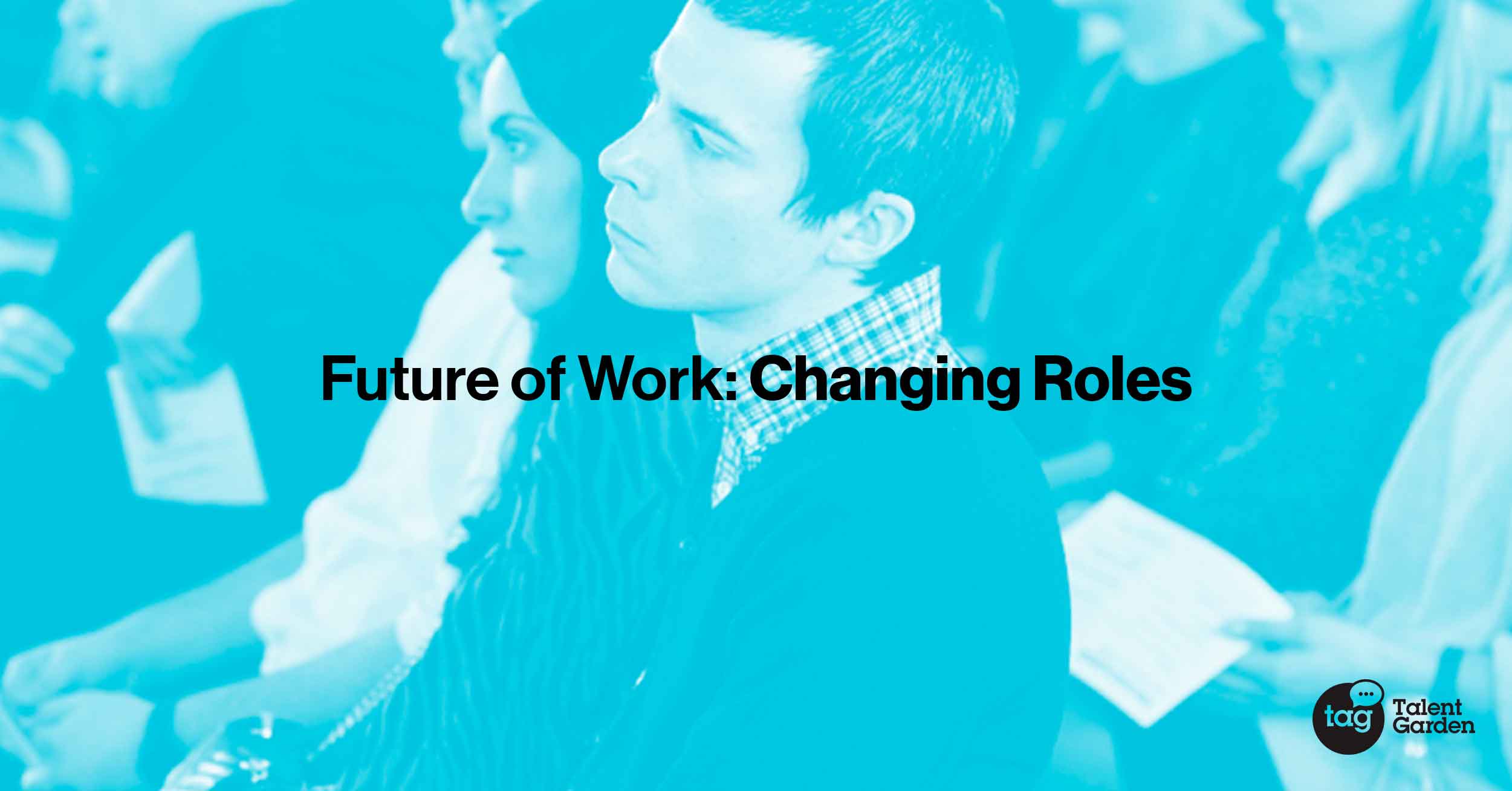

- A collection of preliminary data and reflections gathered within our community: The Hybrid Humans Report (Release: February 6)
- A live event, where we share cases of great work cultures + facilitate an open conversation: The Future of Work Forecast.
Scope of our research: An indicator of trends
1. How are our roles changing and overlapping into others?
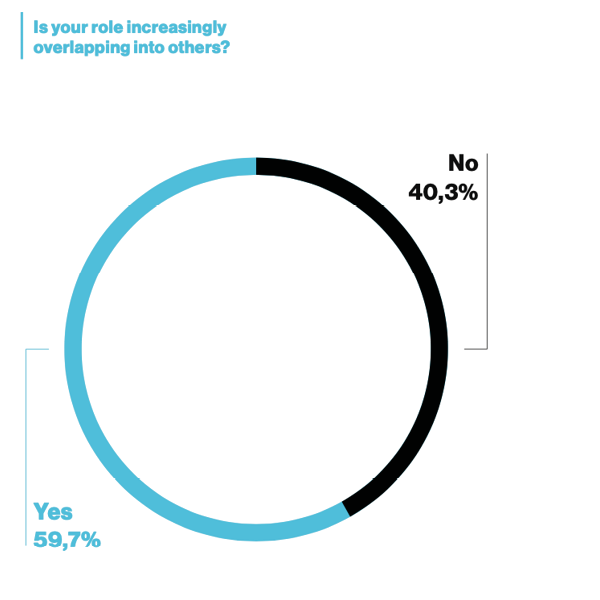 6 out of 10 professionals experience that their job roles are overlapping into others. This is perhaps mirrored by the ratio between hard skills and soft skills required for jobs today. Even within an sector like technology, the majority of us use almost four times as many soft skills as hard skills during a workday. These soft skills mostly fall within the category of design or entrepreneurial skills. Perhaps you used to be a software developer who spent your workday coding away, but today this doesn’t make the cut and you will find yourself more and more involved in other aspects of the business, such as user experience, product development, marketing and sales.
6 out of 10 professionals experience that their job roles are overlapping into others. This is perhaps mirrored by the ratio between hard skills and soft skills required for jobs today. Even within an sector like technology, the majority of us use almost four times as many soft skills as hard skills during a workday. These soft skills mostly fall within the category of design or entrepreneurial skills. Perhaps you used to be a software developer who spent your workday coding away, but today this doesn’t make the cut and you will find yourself more and more involved in other aspects of the business, such as user experience, product development, marketing and sales.
“It is common sense to cease the silo thinking. You need specialists, but you’ll develop faster and come up with better solutions, if those specialists are capable of taking on the perspectives of other business entities in their work.” Pia Tobberup, Communications and PR Manager, McDonalds
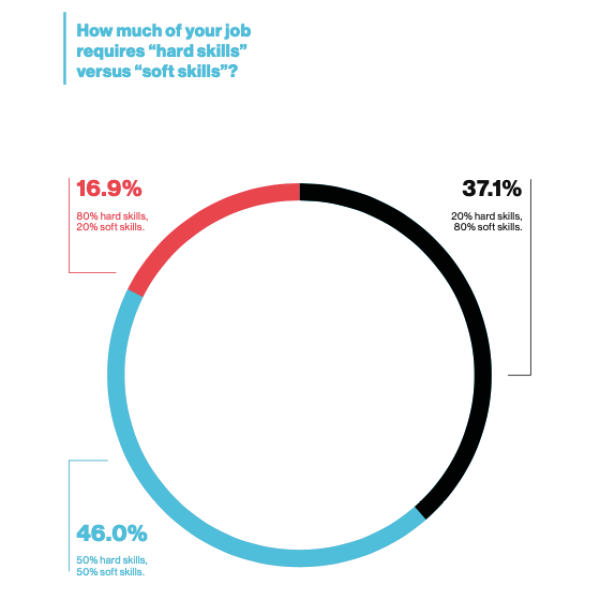
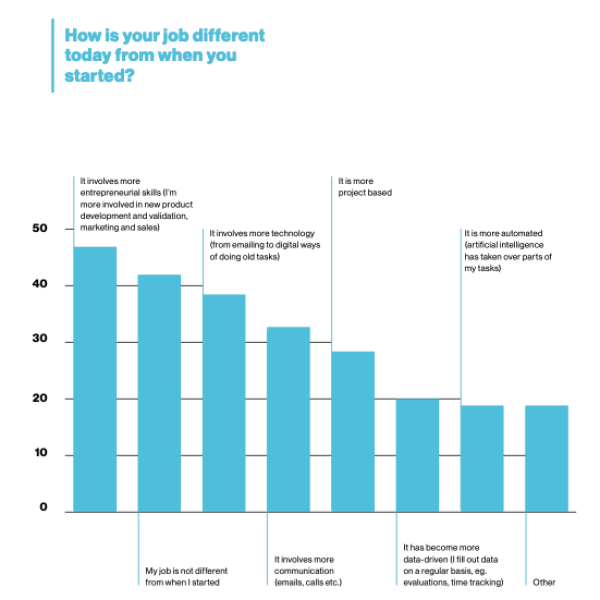
2. What skills do we lack today?
When asked what professional skills the respondents felt that they lacked today, specific technical skills, quite expectedly, ranked high. The second skill set, however, was design skills, which was mentioned by almost 6 out of 10 respondents. Design thinking and UX belong to a set of competencies which transcends industry silos - at least in digital/tech jobs. Design thinking is now becoming a way to structure workflows, meetings, task management, stakeholder communication and more. Leadership skills were desired by just over 40% of the respondents, and so were entrepreneurial skills.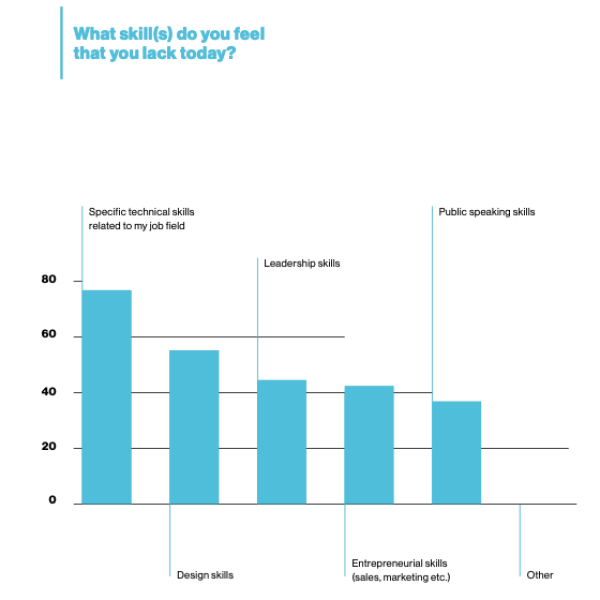
“No matter the industry or job role, it is paramount to understand people and find creative solutions to their specific problems. Then, test these solutions and find out what works. This is the essence of Design Thinking.
And while empathizing, defining, ideating, prototyping and testing, may seem self-evident at this point - the skills and methods needed to do so effectively, certainly aren’t. That’s why we all need to keep getting better at design. Because bettering our design skills, is bettering our ability to make choices that solve real problems.” Simon McGilbray, Service & UX Designer, Alm. Brand
3. New technical skills for a project-based future?
Almost one third of our respondents also stated that their jobs are increasingly project-based. This can mean that you are hired for a particular project and that your contract ends with its completion, or it could simply mean a new way of structuring a workflow. Regardless, it implies a certain discontinuity at work, which might, again, call for new skills and adaptability.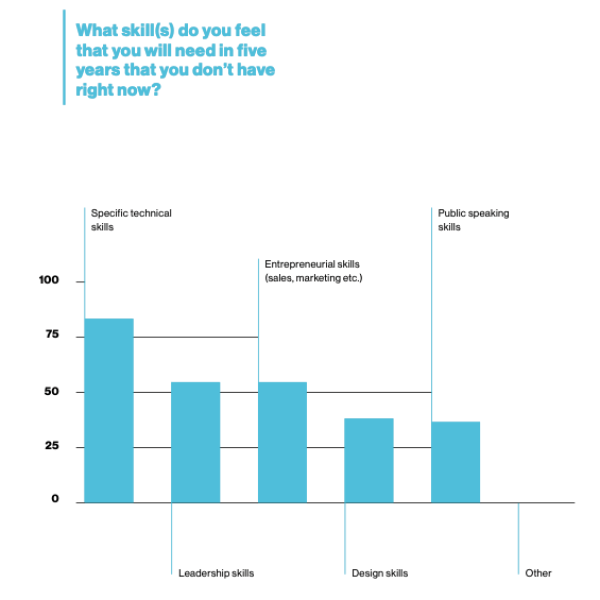
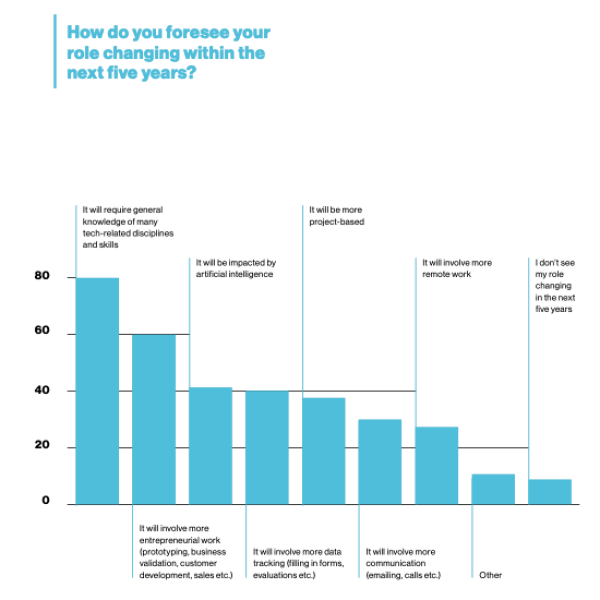
Let's talk it over: Future of Work Forecast on February 20
We know that our research is not definite. So we would like to discuss and elaborate on the themes from The Hybrid Humans Report. We host a live event on February 20, where we share cases of great work cultures + facilitate an open conversation: The Future of Work Forecast at Talent Garden Rainmaking. You get a chance to learn from companies like these:- Soundboks: On how they are building a new kind of work culture from scratch
- Abzu: On implementing self-leadership on all levels of their company.

Don't Waste Your Talent. Turn It Into a Career With a Course That Fits Your Needs!
Keep reading

Startup Funding: 3 Options a Founder Should Consider
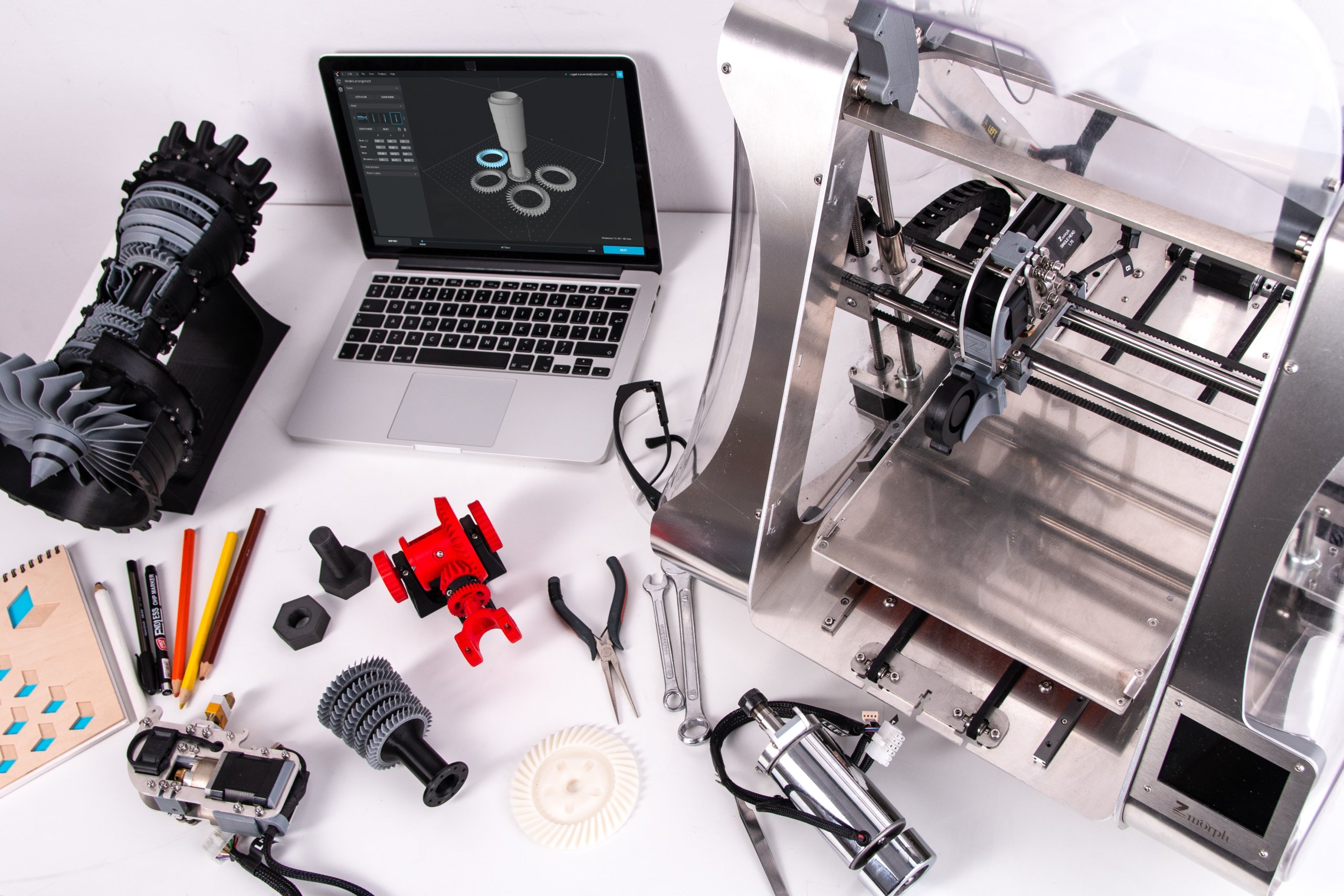
Additive Manufacturing - A Path Towards Sustainability
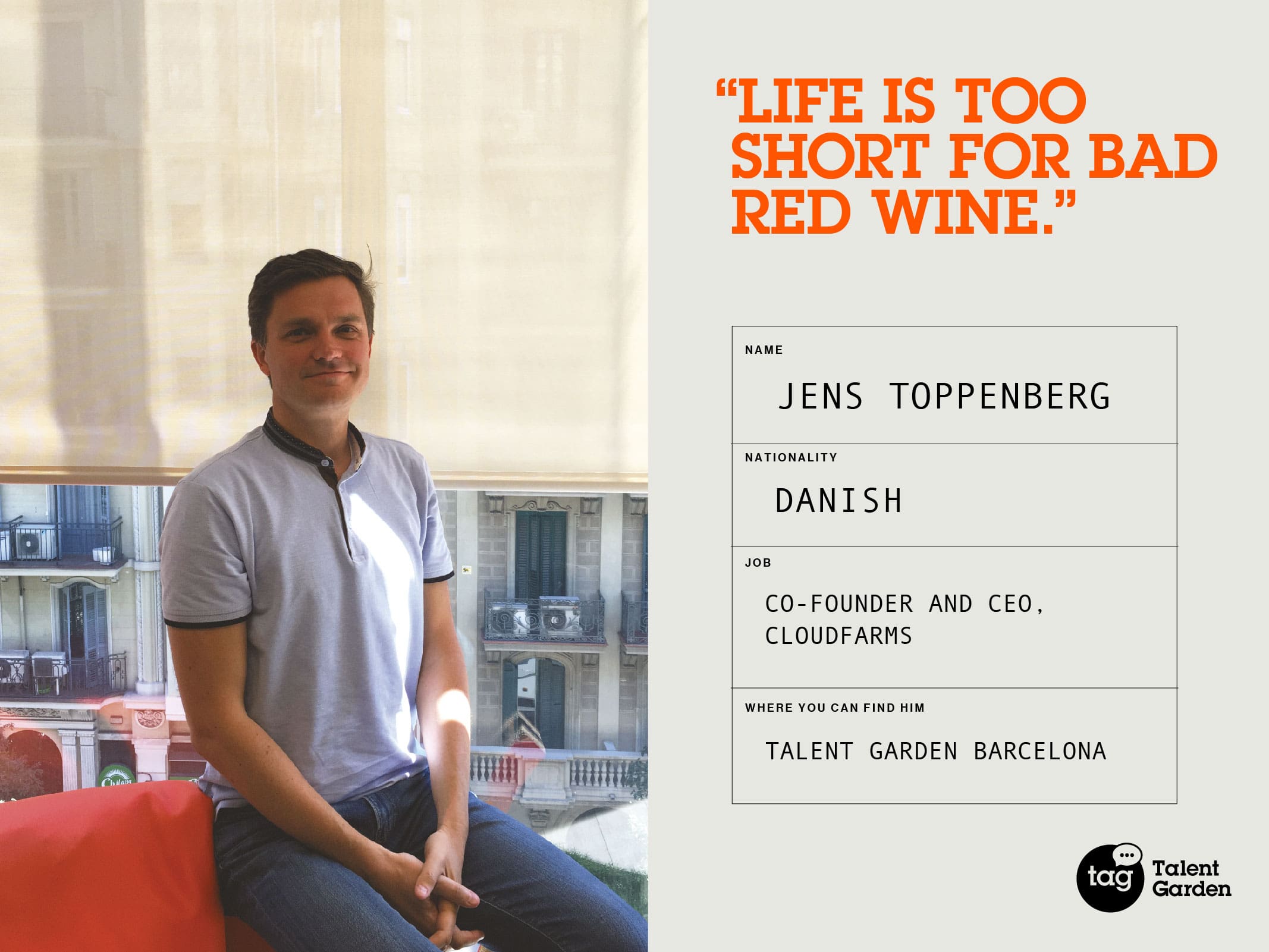
Meet our Community: Jens Toppenberg, Co-founder of Cloudfarms

